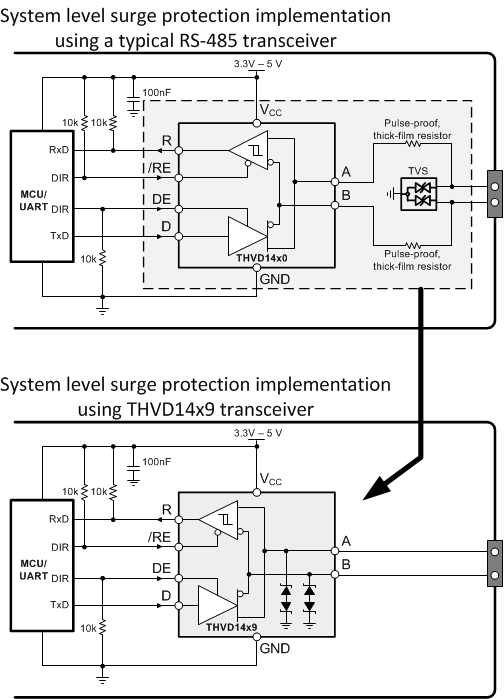SLLSF32C November 2018 – March 2019 THVD1419 , THVD1429
PRODUCTION DATA.
- 1 Features
- 2 Applications
- 3 Description
- 4 Revision History
- 5 Device Comparison Table
- 6 Pin Configuration and Functions
- 7 Specifications
- 8 Parameter Measurement Information
- 9 Detailed Description
- 10Application and Implementation
- 11Power Supply Recommendations
- 12Layout
- 13Device and Documentation Support
- 14Mechanical, Packaging, and Orderable Information
Package Options
Mechanical Data (Package|Pins)
- D|8
Thermal pad, mechanical data (Package|Pins)
Orderable Information
10.2.2 Detailed Design Procedure
RS-485 transceivers operate in noisy industrial environments typically require surge protection at the bus pins. Figure 25 compares 1-kV surge protection implementation with a regular RS-485 transceiver (such as THVD14x0) against with the THVD14x9. The internal TVS protection of the THVD14x9 achieves ±2.5 kV IEC 61000-4-5 surge protection without any additional external components, reducing system level bill of materials.
 Figure 25. Implementation of System-Level Surge Protection Using THVD14x9
Figure 25. Implementation of System-Level Surge Protection Using THVD14x9